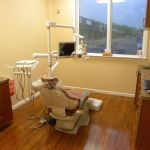Understanding Oral Surgery for Children
Oral surgery is a medical procedure that involves surgical intervention to treat issues within the mouth, jaw, and teeth. For adults, this type of surgery is often associated with wisdom teeth removal, corrective jaw surgeries, or implants. But what about children? Is oral surgery safe for them? The answer is yes, but there are factors that parents need to consider when it comes to their child’s oral health. In this article, we’ll explore the safety, risks, and benefits of oral surgery for children.
What Is Oral Surgery for Children?
Oral surgery for children refers to any surgery that is performed within the mouth, jaw, or facial area. Pediatric oral surgery may involve procedures such as:
- Wisdom teeth removal
- Corrective jaw surgery
- Extraction of damaged or decayed teeth
- Treatment for oral infections or abscesses
- Placement of dental implants
These procedures are performed by a specialized dentist called a pediatric oral surgeon, who has experience working with children and understands their unique needs. Most pediatric oral surgeries are performed under general anesthesia to ensure the child is comfortable and pain-free throughout the procedure.
Is Oral Surgery Safe for Children?
One of the first questions parents may have when considering oral surgery for their child is whether it’s safe. The safety of the procedure depends on several factors, including the child’s age, overall health, and the type of surgery being performed. Pediatric oral surgeons are highly trained in performing surgeries on children, ensuring the process is safe and the child is well-cared for during recovery.
When conducted by a qualified pediatric oral surgeon, the risks associated with oral surgery for children are minimal. These specialists have the expertise to manage anesthesia, prevent complications, and ensure a smooth recovery. It’s also important to follow the surgeon’s pre- and post-operative instructions closely, such as fasting before surgery and caring for the child’s mouth afterward, to minimize any potential issues.
What Are the Benefits of Oral Surgery for Children?
There are several benefits to oral surgery for children, particularly when it is needed to address dental or health issues. Some of the most common benefits include:
- Improved oral health: Oral surgery can help address serious dental problems such as abscesses, decay, or misaligned teeth, leading to improved oral health.
- Preventing further issues: Early intervention through oral surgery can help prevent more severe dental or jaw issues later in life, reducing the need for more complex treatments.
- Increased comfort: If a child is experiencing pain or discomfort due to dental issues, surgery can help alleviate these symptoms and improve their quality of life.
- Better overall health: Addressing dental issues early can contribute to better overall health, as oral health is closely linked to overall well-being.
For example, if a child’s wisdom teeth are causing overcrowding or misalignment, removing them early can prevent further issues with their bite. Similarly, correcting jaw problems through surgery can prevent long-term discomfort or complications with speaking or eating.
What Are the Risks of Oral Surgery for Children?
While oral surgery for children is generally safe, like any surgery, there are some risks involved. These risks include:
- Anesthesia complications: Although rare, there is a risk of complications related to anesthesia, such as allergic reactions or breathing difficulties.
- Infection: Any surgery carries a risk of infection, but pediatric oral surgeons take great care to prevent this by maintaining a sterile environment.
- Swelling and discomfort: After the procedure, it is normal for children to experience some swelling, bruising, or discomfort, which can typically be managed with medications.
- Bleeding: While bleeding is common after some oral surgeries, it’s generally minimal and manageable.
To minimize these risks, it’s important to choose a qualified pediatric oral surgeon and to follow all of the post-operative care instructions provided by the medical team.
How to Prepare Your Child for Oral Surgery
Preparation is key to ensuring that the oral surgery experience is as smooth and stress-free as possible for both the child and the parents. Here are some tips for preparing your child for oral surgery:
- Discuss the procedure: Talk to your child about the surgery in an age-appropriate way. Reassure them that the surgery will help them feel better and that the doctors and nurses will take good care of them.
- Follow pre-operative instructions: Make sure your child follows any instructions provided by the surgeon, such as fasting or taking certain medications.
- Plan for recovery: Ensure you have everything you need for your child’s recovery, such as ice packs, pain medications, and soft foods.
- Arrange for aftercare: Plan for someone to stay with your child after the surgery to provide comfort and help with recovery.
By preparing in advance, you can help your child feel more comfortable and ensure a smoother experience during and after the surgery.
What Happens After the Surgery?
After the oral surgery, your child will need time to recover. The recovery time varies depending on the type of surgery, but in general, children can expect:
- Swelling and discomfort for a few days
- Follow-up visits with the pediatric oral surgeon to check on the healing process
- A temporary diet of soft foods and liquids to avoid irritation
- Medication to manage pain and prevent infection
Most children recover fairly quickly after oral surgery, and any discomfort can usually be managed with over-the-counter pain medications. The pediatric oral surgeon will provide guidance on when your child can return to normal activities.
Conclusion: Is Oral Surgery Safe for Children?
Oral surgery can be a safe and effective treatment option for children when performed by a qualified pediatric oral surgeon. While there are some risks involved, these can generally be minimized by choosing the right surgeon, preparing well, and following post-operative instructions. The benefits of oral surgery, such as improved oral health and preventing further dental issues, make it an important tool in ensuring your child’s long-term health and comfort. Always consult with a pediatric oral surgeon to understand the best course of action for your child’s specific needs.
If you are looking for more information or need a reliable dental service for your child, visit [Chinese Food]. We offer trusted recommendations for your child’s dental care needs.






 Dental Implants and Periodontology of Massapequa4.0 (198 review)
Dental Implants and Periodontology of Massapequa4.0 (198 review) Da Vinci Dental Specialists4.0 (312 review)
Da Vinci Dental Specialists4.0 (312 review) Lee Family Dentistry4.0 (116 review)
Lee Family Dentistry4.0 (116 review) Amazing Smiles Family Dentistry4.0 (412 review)
Amazing Smiles Family Dentistry4.0 (412 review) River City Dental4.0 (149 review)
River City Dental4.0 (149 review) DentFirst Dental Care McDonough4.0 (534 review)
DentFirst Dental Care McDonough4.0 (534 review) The Importance of Oral Health Education During Pregnancy for a Healthy Pregnancy
The Importance of Oral Health Education During Pregnancy for a Healthy Pregnancy Best Tips for Brushing Your Teeth Properly for Healthy Gums: Essential Techniques for Oral Health
Best Tips for Brushing Your Teeth Properly for Healthy Gums: Essential Techniques for Oral Health Why Skipping Dental Checkups Can Lead to Bigger Oral Health Problems
Why Skipping Dental Checkups Can Lead to Bigger Oral Health Problems Advantages of Porcelain Dental Restorations
Advantages of Porcelain Dental Restorations How Can Diabetes Cause Tooth and Gum Problems? Preventing and Managing Oral Health Issues
How Can Diabetes Cause Tooth and Gum Problems? Preventing and Managing Oral Health Issues Healthy Habits for Promoting Good Oral Health and Hygiene: Tips for a Healthy Smile
Healthy Habits for Promoting Good Oral Health and Hygiene: Tips for a Healthy Smile